Mission Office
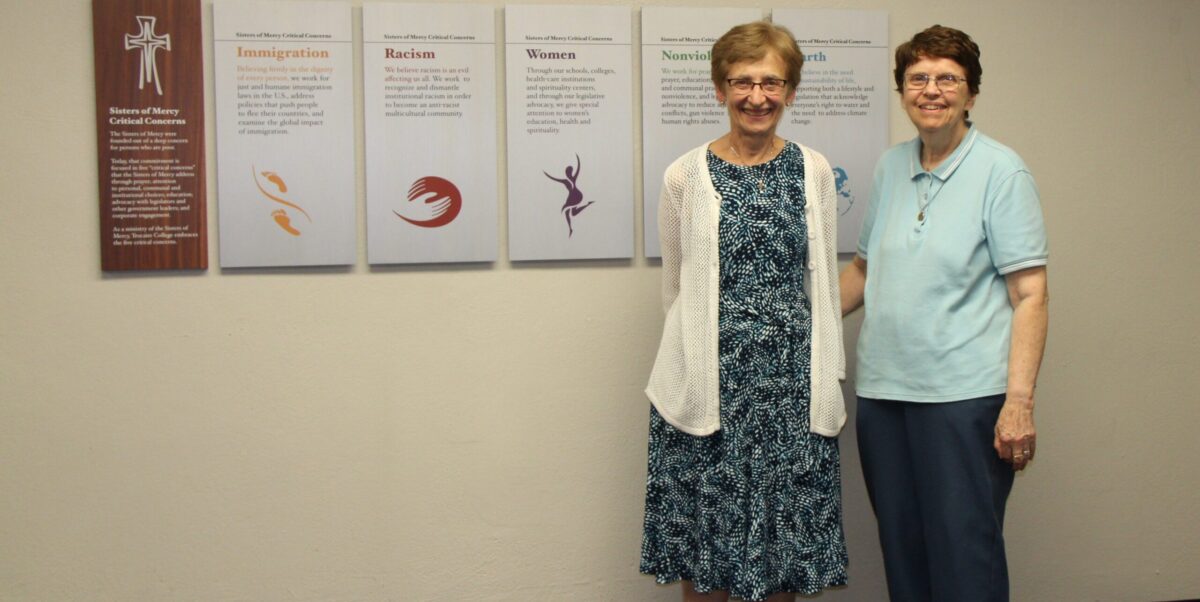
Our focus is on MISSION and our identity as a Mercy Catholic institution of higher education.
- Our primary mission as a Catholic and Mercy institution is education excellence with a commitment to exemplary teaching and service. We offer our students a rich lens through which to engage life within a Catholic Intellectual Tradition comprising Catholic Social Teaching, and Catholic humanism giving special attention to The Sisters of Mercy Critical Concerns and by helping to develop and implement policies that align with our Mercy values to support students as they aspire to careers of achievement and lives of purpose.
- Our ministry is rooted in our Mercy Heritage that provides us with a wealth of spiritualties, which hold to a Creator who is good and merciful. We balance the rigor of academic programs with a contemplative mind and heart thereby providing a holistic approach to education aimed at a healthy development of mind, body, emotions, spirit, and community.
- Having achieved a Mercy education, we send forth students who have as their purpose to make a difference in their families and communities in hope of a more compassionate and fuller tomorrow in service of the Common Good.
- As the Mercy College of Western New York, Trocaire strives to create a welcoming, inclusive, communal environment where human dignity, self-discovery, and professional competence are cultivated in ways that are transformative for our students. Also, through meaningful engagement with the surrounding community in outreach to vulnerable populations we seek to foster in our students and staff a deeper awareness of the world and the development of a social conscience rooted in compassion, mercy, justice, and unfailing love of God.
Mercy Action Project: (MAP)
- MAP is a tuition-free, non-credit, value-added, co-curricular learning experience. MAP provides service opportunities that integrate the College’s mission through an action-reflection approach that connects service to a student’s career path.
- For more information contact Mercy-Action-Project@Trocaire.edu or visit Mercy Action Project (MAP)
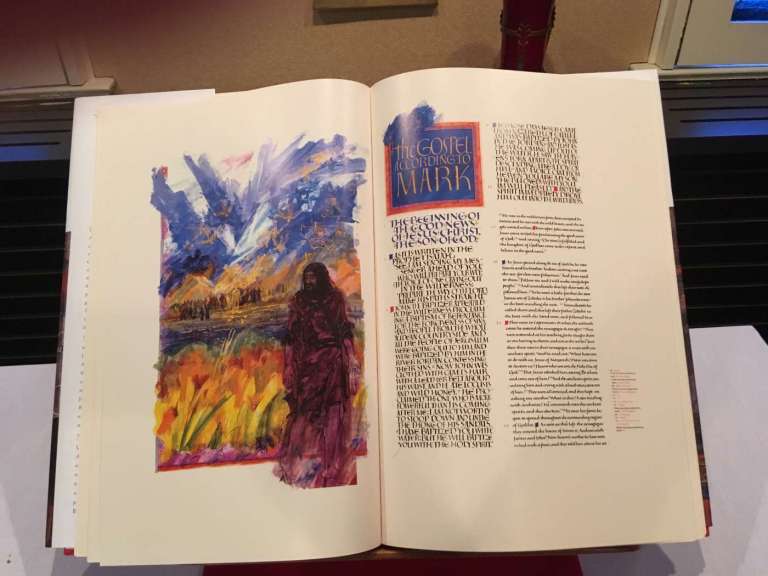
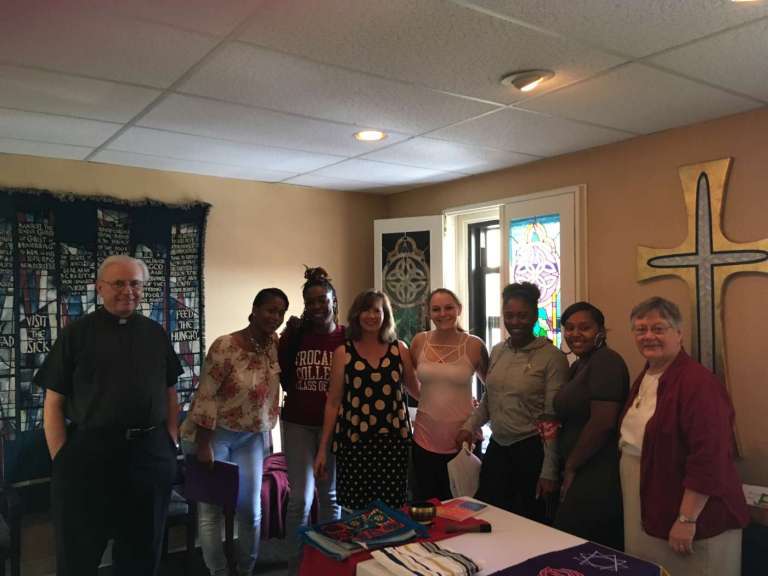
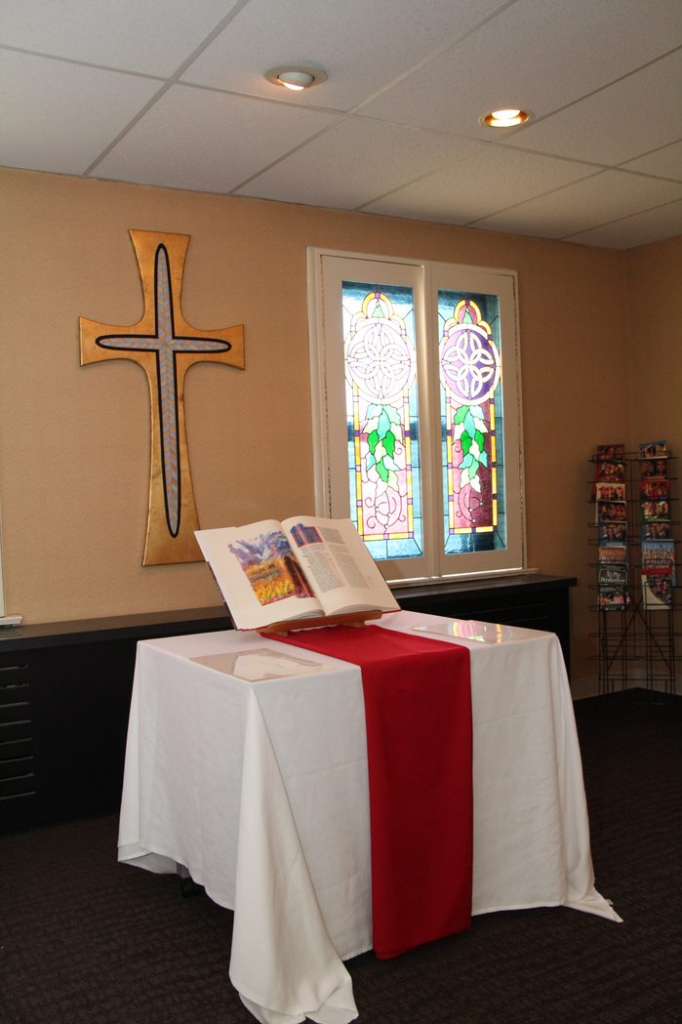


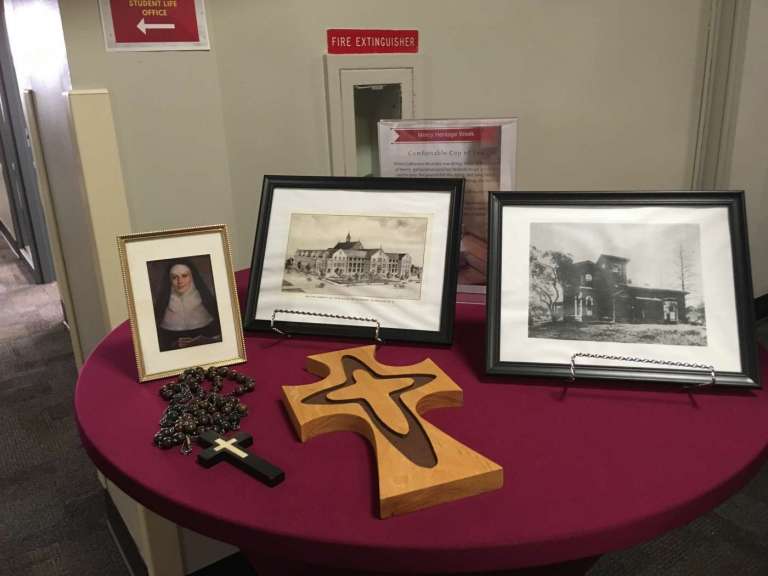
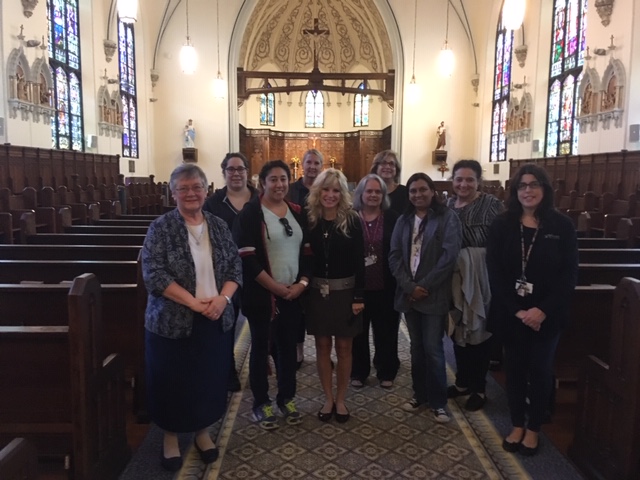




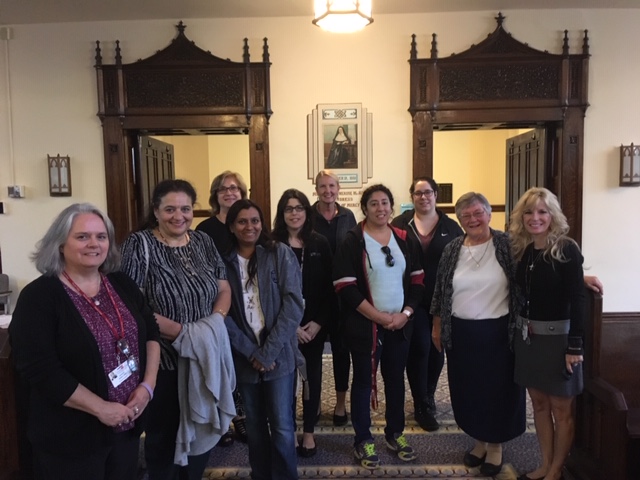
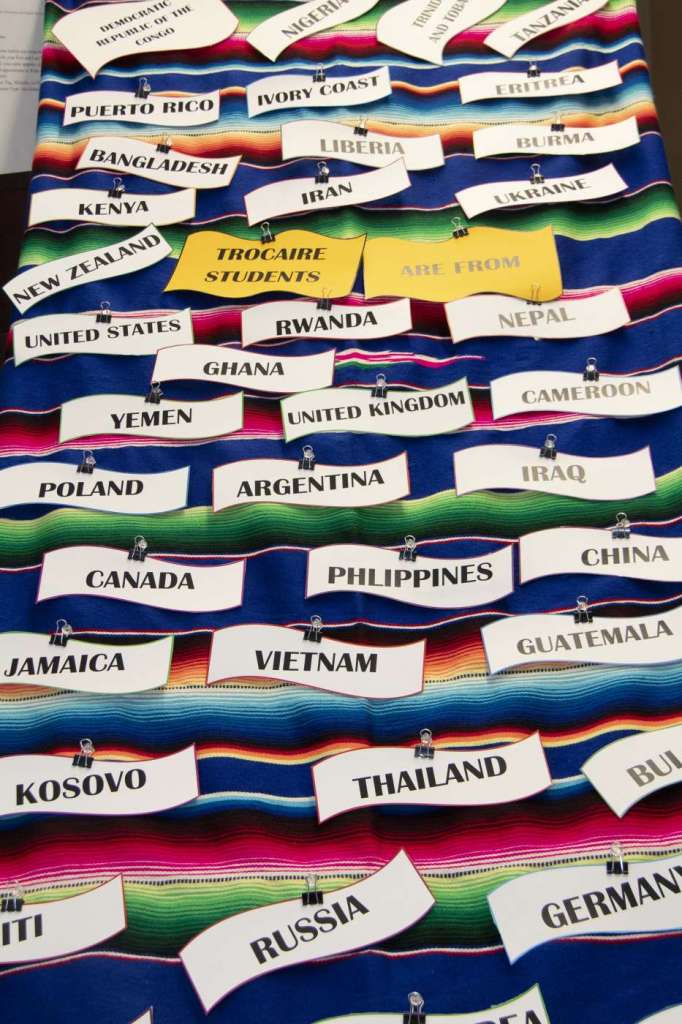
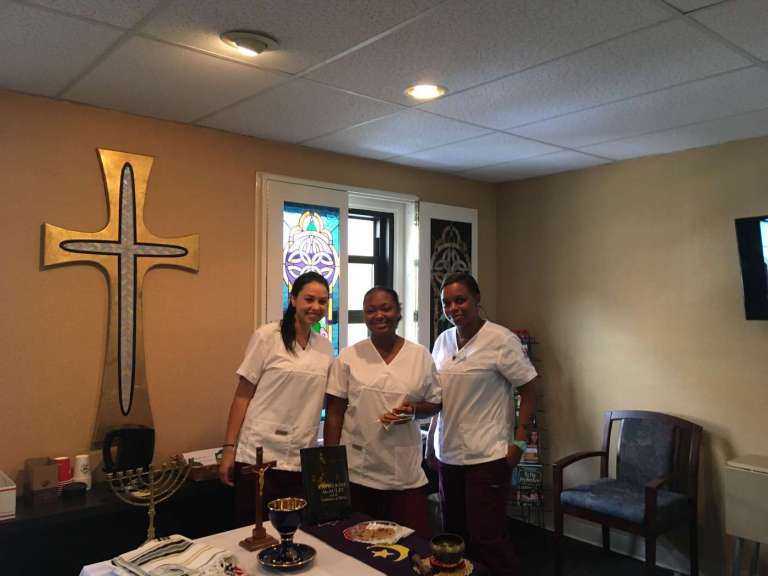
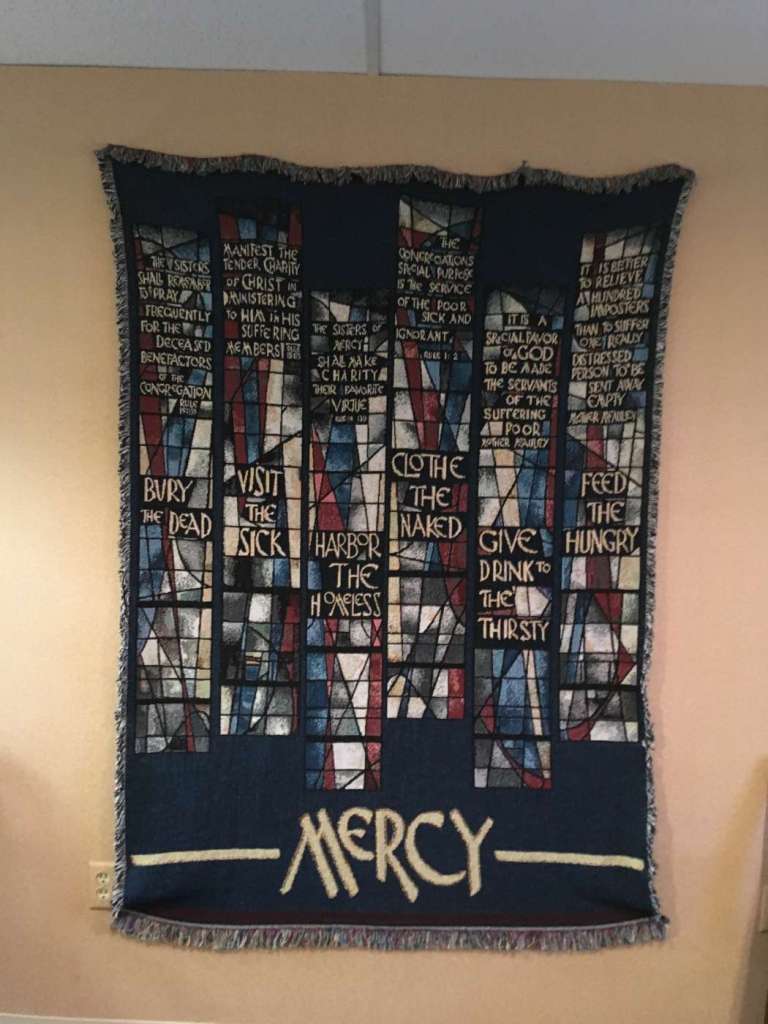

Office Staff
Monica Saltarelli, MA
Mercy Mission Manager
Room L-10
716.827.2451
saltarellim@trocaire.edu
The Life of Catherine McAuley, Foundress of the Sisters of Mercy
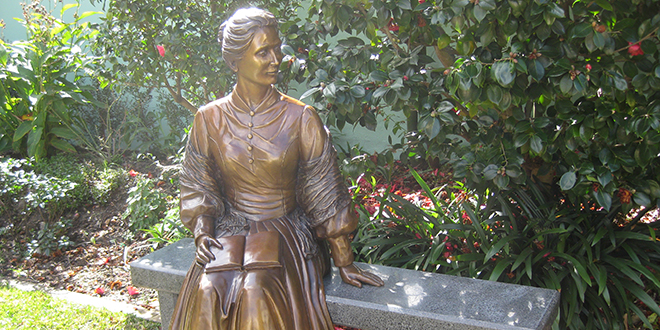
Catherine McAuley was born on September 29, 1778, in Dublin, Ireland. As both her parents died while she was young, Catherine, her brother, and her sister went to live with relatives, the Armstrong’s.
When she was 25 years old, Catherine became a live-in companion and the household manager for a wealthy couple, Mr. and Mrs. Callaghan, who were friends of the Armstrong’s. Impressed with Catherine’s passion to serve the needy they were willing to financially support her charitable work. For 20 years she gave instruction to the household servants and the poor village children in the Callaghan’s home. She also taught needlework to young women and ran a small shop to sell their goods. Upon his death, William Callaghan appointed Catherine the sole heir of his estate, an inheritance worth a million dollars today. The inheritance enabled Catherine to continue providing social services to poor women and children and to educate young girls.
In 1824 Catherine leased a large, three-story property on Baggot Street, Dublin. As it was being refurbished, she studied current educational methods in preparation for her new endeavor. On September 24, 1827, the House of Mercy opened and hundreds of girls were soon enrolled in the school. It also served as a home for young servant girls. Catherine had a group of women who helped her at the house and together with them, she visited the sick in their homes, an extremely rare undertaking at the time.
In these early years, a group of 12 women lived and worked at Baggot Street, adopting a common timetable and dressing simply. This lifestyle and dedication to the poor led Catherine to consider establishing a religious congregation, and on September 8, 1830, at the age of 52 years, Catherine joined the novitiate (a place of training for women wanting to become religious sisters or nuns) of the Presentation Convent in Dublin with two companions from Baggot Street. They were professed (i.e. took vows) on December 12, 1831, and the Institute of the Sisters of Mercy was born.
Catherine’s dream was now a reality. She encouraged her Sisters to “educate poor girls, to lodge and maintain poor young women who are in danger, and to visit the sick and poor”. Within 10 years Catherine founded nine Convents of Mercy in Ireland and England. Each new convent was independent of the mother-house in Baggot Street but they were all linked to Catherine and each other by her frequent visits and letters.
Catherine died on November 11, 1841, after a short illness. But the Mercy Legacy lives on – in each of us! WE ARE TROCAIRE!

